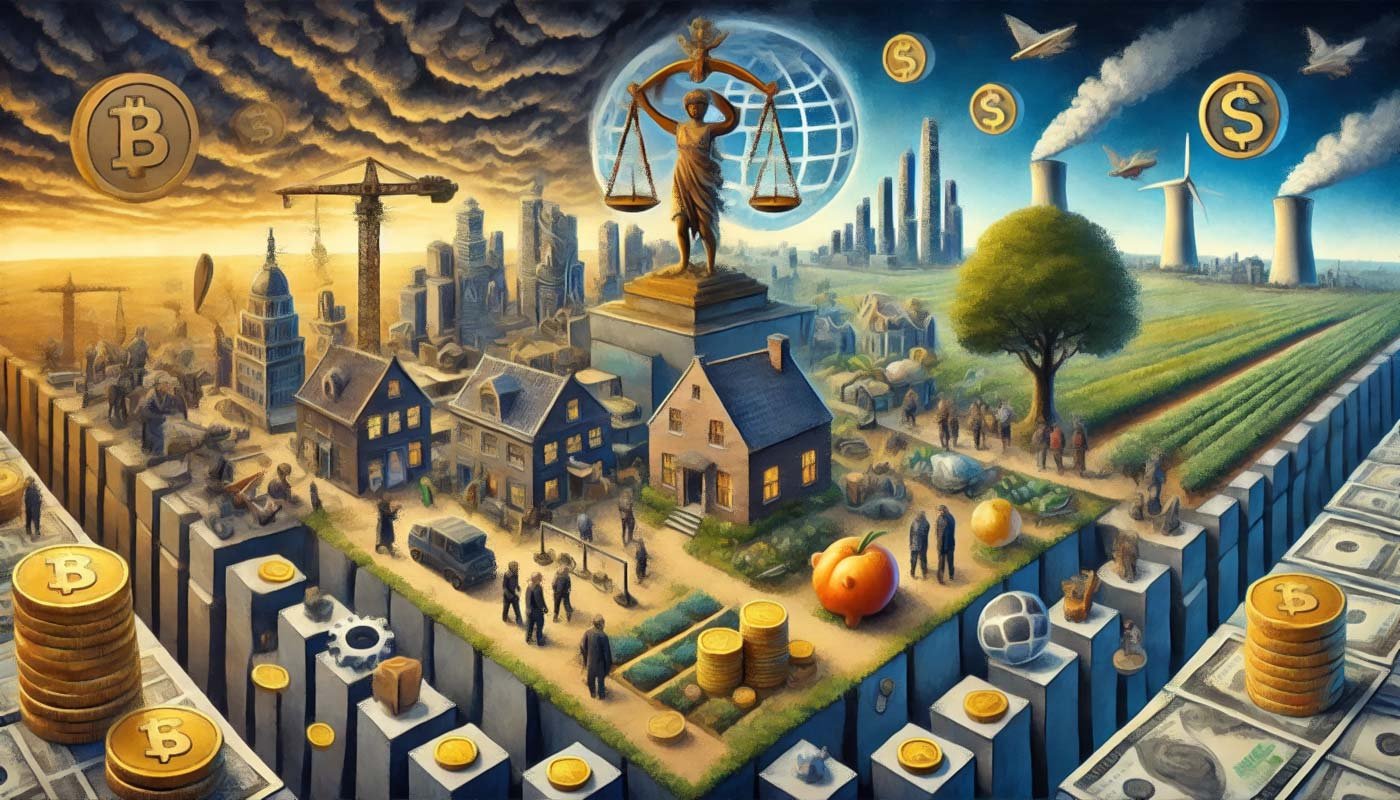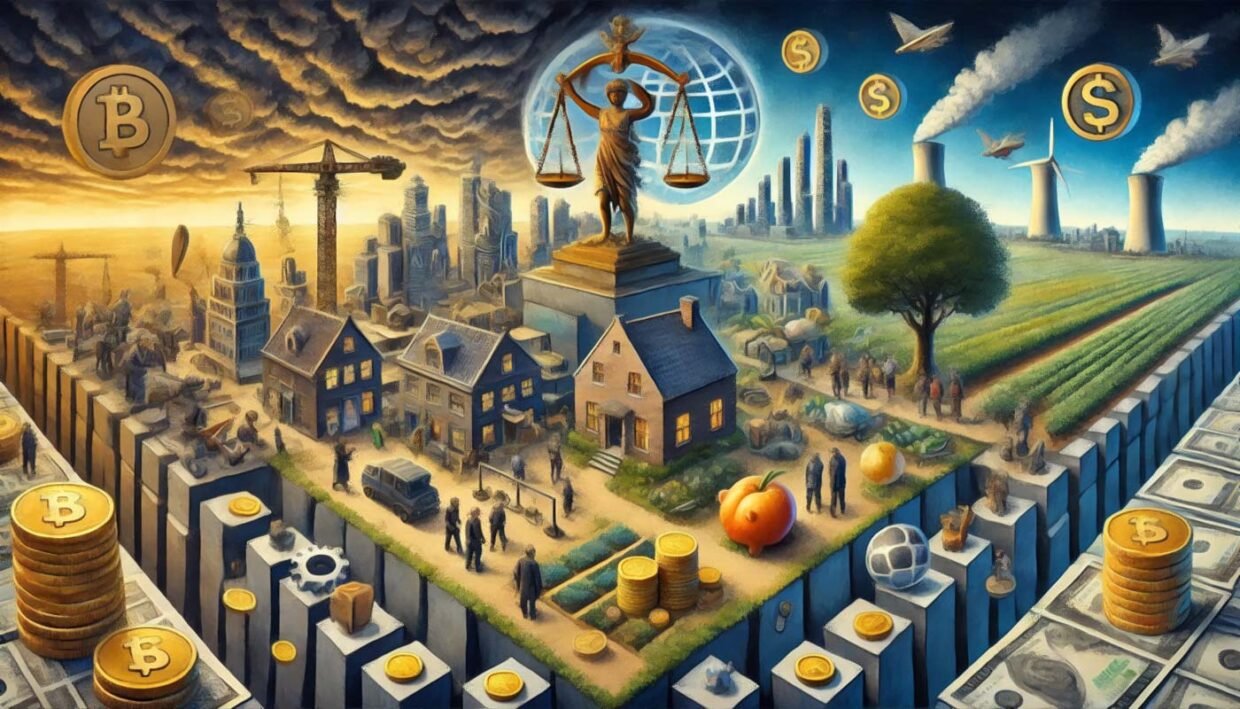
- arrow_back Home
- keyboard_arrow_right The Exploration
The biggest misunderstanding about capitalism – and why it imprisons us

The Exploration Jeroen Schepens 2 March 2025
This article is written from a Dutch perspective and includes references to Dutch policies, institutions and cultural context. While the examples are local, the underlying economic principles and societal insights are widely applicable.
There is a persistent misunderstanding about capitalism that has trapped us for decades in an economic system that does not work for most people: the idea that capitalism is the same as the current system we experience. It is a mistake that prevents us from thinking about alternatives at all. Because when you fight an enemy you don’t fully understand, you’re actually fighting a shadow.
And exactly this is the foundation of the neoliberal status quo: the confusion between capitalism as a valuation system and neoliberalism as an ideology. This misunderstanding causes every attempt at change to get stuck in the same old discussions-while the rules of the game that are the real problem remain untouched.
Capitalism is not….
Let’s start with a simple definition often missing from discussions: capitalism is not an ideology. It is a system we use to assign value to products, services and labor. You can think of capitalism as an empty spreadsheet: it is neutral until you put rules in it. The risk of capitalism lies in the fact that it has no moral compass. It can be used just as much for social welfare as for exploitation. It is a toolbox, not an end in itself. So the problem is not that we use capitalism, but how we have set it up-under the influence of a neoliberal ideology that sees profit maximization as the highest good.…what neoliberalism is indeed
Neoliberalism, on the other hand, is an ideology. It has very clear ground rules: fewer rules for corporations, more privatization and an almost religious belief in the free market. It is neoliberalism that provides mantras such as “trickle-down economics” and “government must withdraw.” Calling neoliberalism the same as capitalism artificially narrows the debate. Thus, it seems as if there are only two choices: either we stick with the current system, or we abolish the entire capitalist system. This is a false contradiction that blocks any discussion of real change.Why this misunderstanding of capitalism is dangerous
You may be thinking, “What semantic drivel.” So it’s not. It’s the bottom line. Words are not just labels; they determine how we think, what questions we ask and what solutions we can propose at all. As long as we confuse capitalism and neoliberalism, we will remain stuck in the same trap. If we reject capitalism as a whole, we are actually fighting a ghost. And that is exactly what neoliberals benefit from: as long as we are busy demonizing capitalism as a concept, the actual rules of the game remain unchanged. Neoliberal capitalism has led us to believe that there is no alternative-and that idea has become a self-fulfilling prophecy. If you ask people if they think healthcare, education and infrastructure should be primarily profit-driven, a majority say no. Yet we have accepted that these essential sectors are treated as if they should be. How? By conflating the terms “capitalism” and “neoliberalism.The real enemy is the version, not the system
The real problem is not capitalism itself, but the neoliberal capitalism that subordinates the public sector to the market. Instead of rejecting capitalism as a whole, we should redefine it and add a moral compass: a Social Capitalism. The idea is simple: not for shareholders, but for stakeholders-the people, the planet and the community. It does not mean returning to a socialist planned economy, but finally changing the rules of the game so that the market no longer keeps us in a rat race.In short.
As long as we keep fighting the specter of capitalism, we will lose the battle against the real problem: a neoliberal system that puts profit above all else. It is time to dispel the specter by redefining capitalism-with a moral compass and rules that ensure profit is not synonymous with predation. Social capitalism is not a utopia. It’s just the next logical step. The real revolution does not begin by abolishing capitalism, but by redefining it. Because when we change the language, we change the debate. And if we change the debate, we will help eliminate the misunderstanding of capitalism and we can finally start building a system that works for everyone. “But,” I hear you thinking, “traditionally capitalism was the counterpart of socialism, right? And capitalism represented capital, that is, the industrialist, the rich man?” Completely correct. And there also lies the origin of the misunderstanding of capitalism. In the next story, we dive into history!© TheSocialCapitalist / Jeroen Schepens. Alle rechten voorbehouden.

